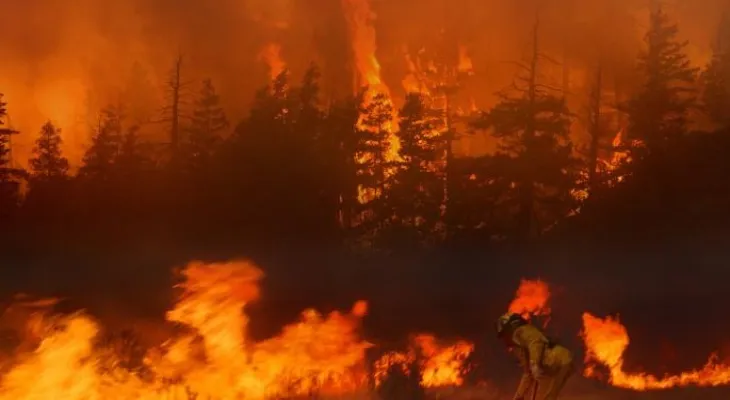Search here
Newspaper
Search here

Arab Canada News
News

Published: October 26, 2024
Climate change has significantly contributed to recording heat waves this summer in Canada, particularly in the Arctic where temperatures reached 35 degrees Celsius, as announced by the Canadian Ministry of Environment on Friday. The ministry noted that three-quarters of the severe heat waves out of the 37 waves studied by climate scientists this summer occurred due to the phenomenon of global warming.
In other words, the likelihood of these heat waves occurring due to warming was at least ten times higher. Researcher at the Ministry of Environment, Nathan Gillet, said, "Temperatures were above normal almost everywhere in Canada this summer," pointing out that the country experienced its fourth hottest summer on record. He added, "Over the past 77 years, average summer temperatures have increased by 1.7 degrees Celsius nationally, and the main reason for this warming is climate change caused by human activities."
Climate change is caused by human activities
The Canadian Arctic region was the most affected by a heat wave that lasted 25 continuous days between September and October in the Kikitakok area of Nunavut. To the west, in the Northwest Territories, the town of Inuvik, located on the shores of the Arctic Ocean, recorded a record of 35 degrees Celsius in early August.
Gillet said, "This is an example of the impact of climate change on the north, which is very concerning," noting that communities are not accustomed to such temperatures. According to data collected by the ministry, it was "extremely unlikely" that such heat waves would occur during the pre-industrial era. On average, Canada is warming twice as fast compared to the rest of the world. In the Arctic, warming is recorded at three times the rate.
Experts pointed out that the spring and summer seasons are becoming warmer, which translates to earlier snow melts during the year, more severe heat waves, and more favorable conditions for wildfires to break out. The government clarified that these extreme phenomena, which are supposed to occur "once every hundred years," are now occurring more frequently and becoming more costly and severe.
Summer 2024 was the hottest ever recorded in the world, as it continued to record record temperatures for over a year, with heat waves, droughts, and devastating floods fueled by global warming.
Comments